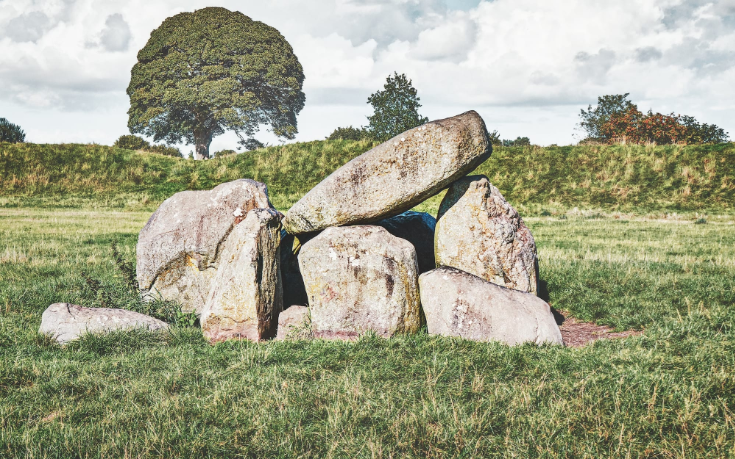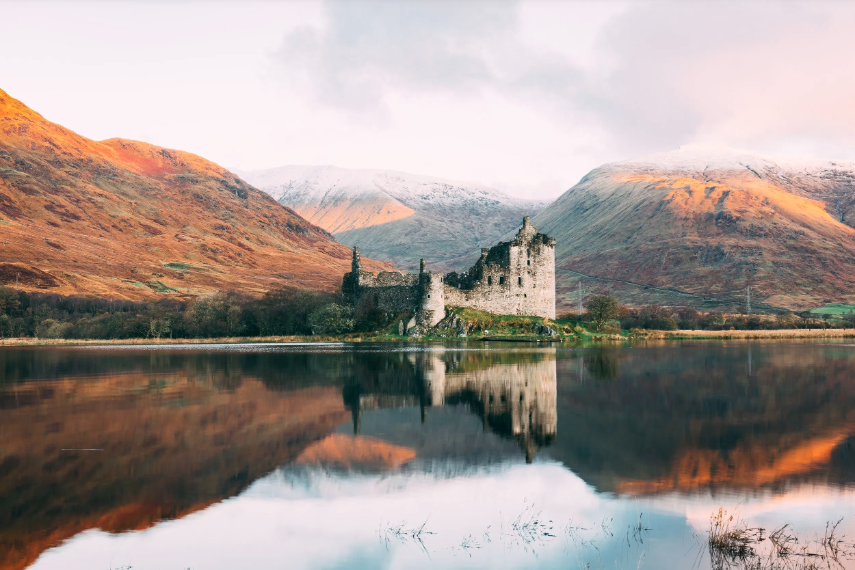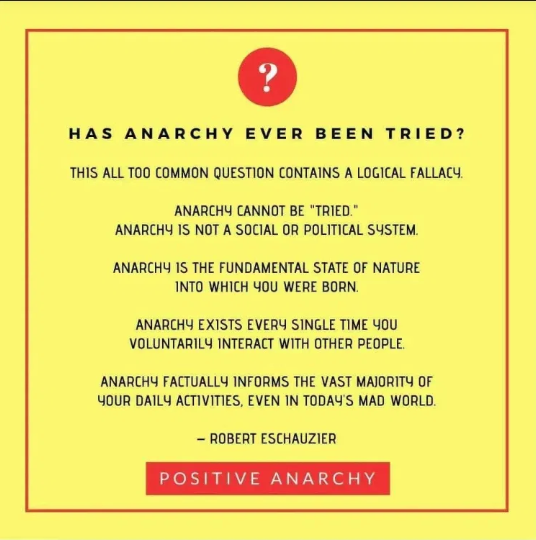The Constitution: A Safe Container for Our Anarchy

We did not learn about the constitution at university. Yes, we took "Constitutional Law", one of the core subjects on a law degree in the late 1980s in England and Wales, but it did not teach us about the constitution, not really. We learnt about the separation of powers, and the study of judicial review was prolonged, but it turns out that the fundamentals were, sadly, lacking. We were told such things as the monarch's role is ceremonial: the Queen has the power to refuse royal assent... but she never would. We believed these things. We trusted that we were being told the truth.

We wrote essays about the pros and cons of judge trials versus jury trials - as if this were a benign academic exercise rather than, perhaps, a manipulation of the psyches of prospective lawyers in order that they would come to unwittingly participate in the denigration of our constitution. Nevertheless, many of us graduated with a strong sense of justice and fought hard for this once in practice within the confines of the world in which we believed. Many of us held the Jury in high regard, but we did not really understand why. We were so busy fighting for others, surviving ourselves, and trying to live, that we did not stop to analyse it. It would not be until 2020 that I would begin to uncover the truth.
As 2020 unfolded and the world became more and more crazy, I began to search for a way that the people would be able to empower themselves and gain freedom from the increasing tyranny. There were many wrong turns before I came across a video entitled: 'The British Constitution: Re-exposing its Secrets' by William Keyte (1). He explained very clearly the true power of the Jury, to judge both the law and the facts of a case, and explained that this is how the people govern themselves... by annulling legislation that is not in alignment with the constitution - our Common Law Constitution - the Law of the Land (man's interpretation of Natural Law). This was mind-blowing for someone who had swallowed the mantra: 'the judge decides the law, and the Jury decides the facts.' The information in the video was profound and true, and this discovery was to prove life changing. This video led me to Mark Passio's seminar on Natural Law (2). Both these videos are essential viewing.
Natural Law allowed me to make sense of so many things I had felt about life and the law, but had not known why. Natural Law, some call it God's Law, is the immutable law of the universe by which we are all bound. We have inalienable rights which nobody can take away - no government, no other people, nobody. Basically, we can live freely and do what we want, as long as we cause no harm or loss to others, keep the peace, and live honestly. Natural Law is simply, that a man ‘shall abstain from committing theft, robbery, arson, murder or any other crime against the person or property of another’(3). There can only be a crime if there is a victim and the ‘sum of a man’s legal duty to his fellow men [is] simply this: “To live honestly, to hurt no one, to give to every one his due”’ (4)
I had long had an aversion to victimless 'crimes' - Natural Law allowed me to see that these were not crimes.
There followed much reading and study, and consideration of the work of anarchists, or voluntaryists such as Larken Rose (his book, 'The Most Dangerous Superstition' (5) another essential on this journey). We have been led to believe that anarchy is about chaos, people throwing bricks, looting and lighting fires in the streets. This could not be further from the truth. Mark Passio explains, in his seminar, the true meaning of anarchy - from the Greek "An' - the absence of, and "Archon' - an external ruler: the absence of an external ruler. In other words, self-mastery. Those in the Voluntaryist Movement believe, as Mark Passio puts it: 'Government is Slavery!'
I began to believe that we did not (ultimately) need the constitution after all. I was in touch with some anarchists who were saying that we cannot be bound by or reliant upon "a magical piece of paper" - this is how they referred to Magna Carta 1215, and any other constitutional documents. They were firmly of the view that nobody could be bound by anyone else's rules - other than Natural Law by which we have no choice but to be bound. For a time, I felt that, the only way forward was for us all to live as anarchists, unbound by any constitution. It was refreshing - a clean slate. I considered that our Common Law Constitution, expressed in Magna Carta 1215, was still important, but was a stepping-stone, en route to a world of free-living anarchists; something we could use until we could do it by ourselves.
Then I came across the work of Thomas Sheridan, firstly a video of his about Natural Law. I really liked his perspective and searched for more. A missing puzzle piece for me came in his video: 'Nation Magic: The Occult Science of Patriotism and Nationhood' (6) in which he described how it was that many tribes lost their way of life to invaders because they did not map their land - they did not maintain their boundary (their magic circle) and were, therefore, easy prey to infiltration and destruction. Thomas Sheridan spoke of how a people, in an area boundaried by natural land features - the sea, a mountain range, a marsh, develop their economy and culture. Then, a council of elders make a map of the land, the boundaries, the features of the land. This map is the grimoire, the legitimization of the land, a declaration of its existence. Then comes the constitution, the national philosophies. The map, the constitution and the culture create a safe-container against the savagery of nature and against those who would seek to invade and destroy the way of life.
This reminded me of the idea of Masculine Containment, so brilliantly spoken of by Teal Swan (7)... the idea that, in order to flourish, a woman needs to be 'contained' by her man.. owned, if you like, though not in a stifling, controlling way, but rather, protected, and in that protection she can relax, create and thrive. I started to believe that the nation (but it could just as easily be a smaller geographical area - a village or shire, for example) and its constitution provided the boundary necessary for any group of people to be free to live an anarchic lifestyle in safety.
This was at the same time as I came to understand fully that our constitution was not a contract between the people and the 'state' (at the time of Magna Carta, the King), but a promise by the King to protect our Common Law way of life. The Common Law, or the Law of the Land, existed for a long time before Magna Carta (8) and, in fact, the Trial by Jury has its origins in Hellenic Greece (9). These laws and customs of which the jury was an essential part, had been written down by Alfred the Great and the later Saxon Kings and again, in Magna Carta. In other words, Magna Carta 1215 did not create or grant any rights, but rather was a document, a peace treaty, which confirmed that these inalienable rights exist.
I came to realize that, for all our legislation (parliament-made law) attempting to control our every move, most of our interactions with other people happen on a voluntary or anarchic basis.

https://www.instagram.com/positive.anarchy/?hl=enhttps://m.facebook.com/positiveanarchyfocus/photos/a.656280777846502/1901783016629599/?type=3&_rdr
That most of the huge volume of legislation we have is unnecessary, and that our Common Law Constitution, really boils down to this:
- We live in alignment with Natural Law,
- We have a tribunal (the Jury) to decide, in disputes, whether or not our inalienable rights have been infringed and, if so, whether the culprit should be punished, and
- We choose a wise elder or King who promises to help us keep (1) and (2) in place.
The people are not bound by the constitution, but the King (and his government if he/ the people choose to have one) is. It is a promise by the King to preserve this way of life, to help the people ensure that their inalienable rights are not trampled by anyone, and that nobody may be deprived of their liberty without a trial by a jury of their peers. The King (wise elder) is our highest public servant helping the people govern themselves through the jury (a representation of the country making decisions based on the consciences of the individual jurors), and in this way, the people create and uphold their law.
Everyone is equal under the law. Our Constitution preserves and protects an anarchic / voluntaryist way of life. Our Constitution helps the people to live as individuals, interacting with others on a voluntary basis, whilst ensuring that no person's individual rights are transgressed.
Humans are a social species and will, by and large, need to live in community. All our Constitution really does is provide a tribunal (jury) for occasions when disputes arise and a wise elder (or council of elders) to ensure this way of life is remembered and upheld.
Through studying the true power of the Trial by Jury when working as it was intended under our Constitution, coupled with an understanding of the protective boundary provided by the land mass, something mappable, to which the King's promise pertains, I came to the conclusion that our Common Law Constitution is a safe container for our anarchy.
Postscript on the word 'Anarchy'
Through a study of the doctrine of Annulment by Jury (Jury Nullification / or Independence), it is ironic to note that, when asked to give a direction that the Jury decide the facts AND the law in a case, the Judges have often declined to so do. They recognise the power of the Jury to decide the law, but say that if the Jury were to be told this, there would be anarchy. Indeed, there would - no external rulers, the people ruling themselves. (10)
It is interesting to consider Stephen Jenkinson's analysis of 'anarchy', which he relates to the 'arche', or rather, the absence of it:
'Arche is "that which understands and bears up." If the ancestral presence, the unseen but attested-to sustaining presence, is the ground of our personal and cultural being - and it is - then the agent of that sustenance is the foundation stones resting upon it, those upon which our personal and cultural lives stand. Those foundation stones are elders, and that under standing and bearing up is what they do for us. Real human life is inconceivable without them. Life without them is anarchy.' (11)
And, equating the coming of Christianity to the end of culture:
'Christ's love was anarchy, in every sense of the term, the voiding and the devastation of the web of belonging that bound people to the world, to each other, and to their ancestors, the fundamental arche of their lives. No village hierarchy rooted in tradition or merit; no enduring, time-proven ceremonial mingling with the dead; no esteemed tradition that granted the old meaning to peoples' lives, no veneration of elders. All of it is gone in the name of love. The old kinship was replaced by the fellowship of all believers. The old village-mindedness was replaced by the Kingdom-of-God, freeing anyone from the useless allegiance to what had come before. Let the dead bury the dead, let the ancestors care for each other now that the new believers won't be caring for them.' (12)
Could it be that what some anarchists, or voluntaryists (and much of our current society) are missing are the wise elders, the heritage, the lineage and customs of the tribe, village or nation? Look again at our Common Law Constitution - it will help us reclaim these missing foundations.
LW
References
1. William Keyte - The British Constitution: Re-Exposing its Secrets https://www.youtube.com/watch?v=HJoB8xcP1l8
2. Mark Passio - Natural Law Seminar - in three parts https://www.youtube.com/watch?v=HJoB8xcP1l8https://www.youtube.com/watch?v=57UBuxnicOA&t=5shttps://www.youtube.com/watch?v=204aGDVa3Vw&t=32s
3 and 4. Lysander Spooner (1882) Natural Law (p5)
5. Larken Rose (2011) The Most Dangerous Superstition
6. Thomas Sheridan - Nation Magic - The Occult Science of Patriotism and Nationhood https://www.youtube.com/watch?v=9OlOEjBKnHo&t=32s
7. Teal Swan - Containment - What a Woman needs from a Man in a Relationshiphttps://tealswan.com/videos/relationships/containment/
8. Lysander Spooner (1852) - An Essay on The Trial by Jury
9. Kenn d'Oudney (2020) - Democracy Defined: The Manifesto, 3rd ed.
10. See for example PBS Frontline: Inside the Jury Room (1986) https://www.youtube.com/watch?v=Enkf4OXZa0A and further examples in Clay S Conrad's excellent book Jury Nullification. The Evolution of a Doctrine (2014)
11. Stephen Jenkinson - Come of Age (2018) (p.206)
12. ibid. (p.225)